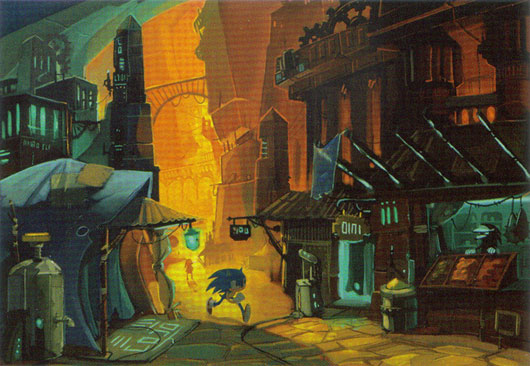The soundtrack may be abysmal, and the graphics incredibly outdated, but Nintendo’s F-Zero X on the N64 is still, in my mind, one of the greatest single-player racing experiences on any console. The reason? It’s just simple mathematics.

Like a lot of racing games, the Grand Prix mode of F-Zero X determines ranking with a point system. At the end of every race, each racer is awarded with a number of points depending on what place they finished. First place is awarded 100 points, second-place 93, all the way down to thirtieth place, which is awarded a meager 15 points.
Over the six tracks in each Grand Prix cup, the points earned from each race are tallied, and this is how overall ranking is determined. In of itself, the point system is simplistic, but effective. A player doesn’t necessarily have to rank first place in every race to claim first place overall. In fact, a player can have one or two lousy races and still manage to earn a medal, provided the other racers also performed inconsistently.
Of course, relying on computerized racers to mess up isn’t the best way to win, and this is where F-Zero X stands out. Building upon the damage meter from the first F-Zero game on Super NES, F-Zero X introduced a battle system, where players could perform side-swipes or spin attacks mid-race to knock opponents off the track, or total their vehicles entirely.
And the number of points awarded to a racer who is eliminated from a race? Zero.
You see, F-Zero X wasn’t just about racing; it was also about offing the competition. When gunning for first-place overall, sometimes the best strategy is to eliminate the current leader, causing his score to plummet. Second-place racer closing in on your lead? Wipe him out in the next race, and secure your point advantage over your opponents.
F-Zero X didn’t just make this style of gameplay possible; it made it easy. Arrows indicated the vehicle in third, second and first place, as well as marking your “rival,” the racer directly ahead of or behind you in overall ranking. The thirty vehicles populating each course are also each uniquely designed, and easily identifiable. Even while racing through a cork-screw track at break-neck speeds, spotting the Wild Goose or Deep Claw was never difficult. Racing alongside to attack, however, and doing so without pitching yourself off the course, was certainly never easy, either.

The Gamecube sequel to this title, F-Zero GX, should have built upon this offensive form of gameplay. Unfortunately, the track designs were needlessly busy and overcomplicated, making it all too easy for players to fall to their deaths if they weren’t careful. With this subtle change in game design, it became too difficult to target and eliminate opponents, let alone stay alive and still finish in the top three.
It may just be that F-Zero X is one of those once-in-a-lifetime games, with just the right gameplay elements intermingled to produce a near-perfect experience. With the portable versions of the series building upon the SNES-style gameplay, and nary a hint of a Wii version on the horizon, we might never see another F-Zero game as polygonally-perfect as F-Zero X.
Oh well, at least it’s on the Virtual Console for us to replay into oblivion.








